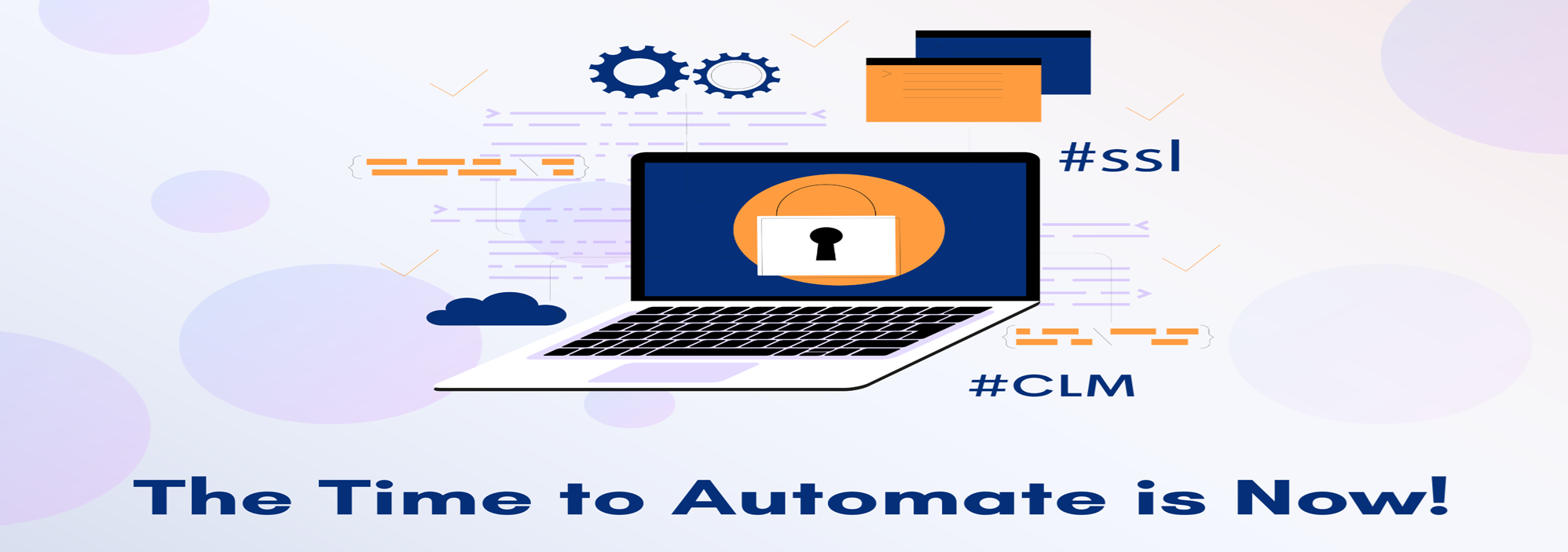Google’s shift towards 90-Days Validity of SSL/TLS Certs, Arises need of CLM (Certificate Lifecycle Management)

In a move to enhance online security, Google has proposed reducing the maximum validity period for TLS certificates from 398 days to 90 days. This significant change aims to mitigate the potential risks associated with long-term certificates, such as the exploitation of vulnerabilities discovered after issuance. While the proposal got mixed reactions, it underscores the importance of robust certificate lifecycle management (CLM) practices.
Why the Change?
The primary reason behind Google's decision to reduce the SSL certificate validity period is to enhance security on the internet. By shortening the lifespan of SSL certificates, Google aims to reduce the window of opportunity for attackers to exploit vulnerabilities. Shorter validity periods ensure that certificates are renewed more frequently, allowing website owners and certificate authorities to stay on top of emerging security threats and vulnerabilities.
Implications for Website Owners:
-
Increased Administrative Effort: The shorter validity periods mean that website owners will need to renew their SSL certificates three to four times more frequently than before. This additional administrative effort can be challenging, especially for large organizations managing numerous certificates.
-
Enhanced Security Practices: Website owners will need to adopt a proactive approach to security management. Regular monitoring, updating, and replacing SSL certificates will become crucial to maintaining a secure online presence.
-
Reminder Systems: Website administrators will need to implement reliable reminder systems to ensure the timely renewal of SSL certificates, reducing the risk of inadvertently letting certificates expire.
The Role of CLM in Managing Google's 90-Day TLS Certificate Shift
In the rapidly evolving digital landscape, cybersecurity stands paramount. Google's proposal to reduce TLS (Transport Layer Security) certificate validity to 90 days has sparked significant discussions within the tech and security realms. This shift aims to bolster security by promoting more frequent certificate updates, but it also poses challenges for organizations managing their digital security infrastructure.
The Significance of CLM Amidst Google's TLS Changes
Certificate Lifecycle Management (CLM) holds a pivotal role in mitigating the impacts of Google's proposal. CLM refers to the administration, tracking, and maintenance of digital certificates throughout their lifespan. Its significance becomes evident in managing shorter TLS certificate validity periods efficiently.
Here's how CLM can help organizations navigate the 90-day certificate shift:
-
Certificate Issuance
Manage high-volume TLS/SSL certificate issuance for multiple individuals and teams in a fraction of the time. With role-based user access and domain pre-validation, you’ll save time with certificate management that can be put toward more critical tasks—like inspection and remediation.
-
Certificate Installation
Enjoy hands-off TLS/SSL certificate distribution by using SCEP, REST, EST, or auto-enrollment to automate certificate deployment for devices and users across your network.
-
Certificate Inspection
With a single click, scan all your TLS/SSL certificates for vulnerabilities and weak configurations to avoid a lapse in security. See analytics and reports about the health of your network at any given moment.
-
Certificate Remediation
When CertCentral finds an issue, you’ll get remediation suggestions with detailed answers to virtually any certificate problem. And if you ever need to revoke a certificate, it only takes one click.
-
Certificate Renewal
Lapsed TLS/SSL certificates can cost a business millions of dollars. The CertCentral automatic renewal option eliminates the headache of manually tracking certificates so you can avoid unplanned outages.
-
Certificate Automation
From hosted, agent-based, or sensor-based automation to ACME URL, CertCentral provides flexibility to automate certificate lifecycles in the best way fit for your organization, so you can avoid expiring certificates and tedious manual tasks.
-
Integration with private CA
Integrating CLM with a private CA streamlines certificate management, ensuring automated issuance, renewal, and revocation. It enhances security, aligns policies, and centralizes control, enabling efficient lifecycle management, compliance adherence, and synchronized key handling for robust digital security within the infrastructure.
-
CA Agnostic
A CA-agnostic CLM allows seamless management of certificates from multiple CAs. It offers flexibility, enabling easy migration, diverse CA usage, and reduced vendor dependency. This approach fosters interoperability, simplifies administration, and facilitates comprehensive certificate lifecycle management across varied infrastructures.
How JNR Can Help Simplify Renewal of Short-lived Certificates at Scale?
JNR Management has a ready-to-consume, scalable certificate lifecycle management (CLM) solution that automates all certificate processes end-to-end. You can discover, inventory, monitor, and automate the complete certificate lifecycle, all through a central console. By providing visibility, control, and insights, JNR Management simplifies certificate lifecycle management and helps you stay on top of cyber threats.